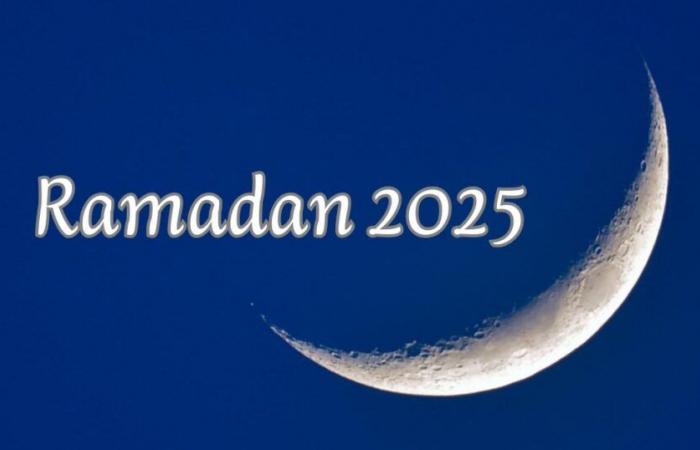Muslims around the world are eagerly awaiting the holy month of Ramadan. According to the most recent astronomical calculations, the first day of Ramadan 2025 should fall one Saturday March 1, 2025.
It is important to note that these dates are likely to be confirmed or adjusted after the observation of the lunar crescent by the National Commission for Observing the Lunar Crescent.
According to forecasts, Ramadan 2025 should last 29 days. Thus, Eid el-Fitr, marking the end of the fast, would be celebrated on Sunday March 30, 2025.
As every year, the duration of the fast will vary depending on the regions of the world and the latitude. For the first days of Ramadan, the faithful can expect fasts of approximately 1 p.m. in many Arab countries.
However, as the month progresses, the duration of the fast will gradually lengthen to almost 2 p.m. at the end of Ramadan.
These dates are based on astronomical calculations and may be subject to change. Thus, the official date of Ramadan 2025 and Eid el-Adha in Algeria will be determined by direct observation of the lunar crescent and announced by the Ministry of Religious Affairs and Wakfs.
These predictions are also confirmed by Ibrahim Al Jarwanrenowned astronomer and director of the Sharjah Planetarium. According to his calculations, the first day of Ramadan 2025 should coincide with 1er mars, a date which agrees with general estimates.
???? ALSO READ: Exceptional potato harvest: The Ministry is working hard for Ramadan 2025
Ibrahim Al Jarwan’s authority in astronomical calculations relating to the Islamic calendar makes his forecasts a reference awaited each year by Muslims around the world.
As a reminder, the 1st day of Ramadan 2024, corresponding to the year 1445 AHwas the Monday March 11.
How is the 1st day of Ramadan determined in different Muslim countries?
The determination of the first day of Ramadan varies according to countries and traditions. If the majority of Muslim countries favor visual observation of the new moonothers opt for astronomical calculations.
Indeed, tradition dictates that the start of Ramadan is determined by the appearance of the lunar crescent. It is an ancestral practice, anchored in the teachings of the Prophet.
Thus, in many Arab and Muslim countries, observation committees are set up to scan the sky and visually confirm this new moon. In Saudi Arabiafor example, it is the Supreme Court which is responsible for this crucial mission. In Algeria, it is National Commission for Observing the Lunar Crescent who is responsible for this task.
???? ALSO READ: Ramadan 2025 – Rise in prices of white meat: The government takes the lead
However, this traditional method coexists with more scientific approaches. Some countries, like the Türkiyeprefer to rely on precise astronomical calculations to set the dates of Ramadan.
This method allows for greater predictability, but it is not unanimously accepted within the Muslim community.






